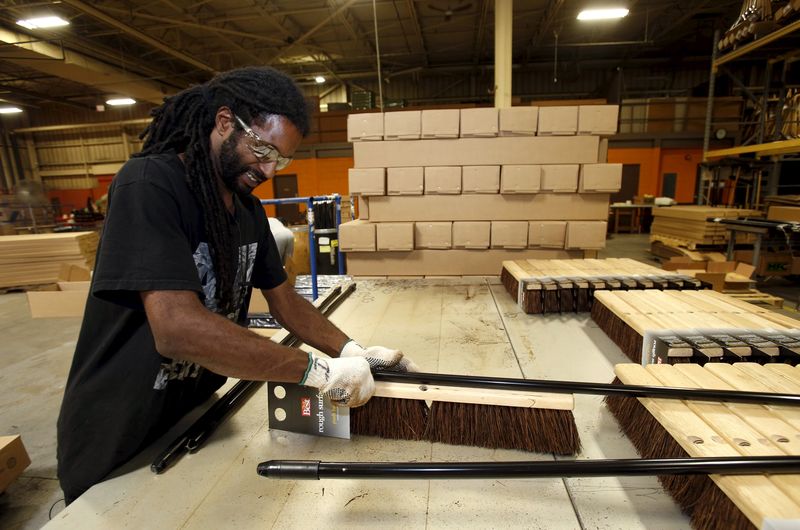WASHINGTON, (Reuters) - U.S. business inventories were unexpectedly flat in September as stocks at retailers were not as large as initially thought.
The Commerce Department said on Friday that the unchanged reading in business inventories followed a 0.1% dip in August. Inventories are a key component of gross domestic product.
Economists polled by Reuters had forecast inventories edging up 0.1% in September.
Retail inventories rose 0.2% in September instead of increasing 0.3% as estimated in an advance report published last month. That followed a 0.2% drop in August.
Motor vehicle inventories gained 0.2% in September as previously reported. Retail inventories excluding autos, which go into the calculation of GDP, increased 0.2%, instead of climbing 0.3% as reported last month.
The pace of inventory accumulation has been slowing after stocks surged from the third quarter of 2018 through the first quarter of this year. The inventory overhang has led to businesses placing fewer orders at factories, contributing to a downturn in manufacturing activity.
The government reported last month that inventory investment subtracted a marginal 0.05 percentage point from GDP growth in the third quarter. The economy grew at a 1.9% annualized rate in the July-September quarter, driven by consumer spending.
Wholesale inventories dropped 0.4% in September, while stocks at manufacturers increased 0.3%.
Business sales fell 0.2% in September after edging up 0.1% in the prior month. At September's sales pace, it would take 1.40 months for businesses to clear shelves, unchanged from August.
Motor vehicle sales declined 1.3% in September after advancing 2.0% in August. The auto inventory-to-sales ratio rose to 2.35 months from 2.31 months in August.
